IMPROVING THE QUALITY OF EDUCATIONAL SERVICES THROUGH THE INTRODUCTION OF LEAN PRODUCTION TECHNIQUES IN «BelSU»
Abstract
The article discusses the essence of the concept of "lean production" which is considered in four aspects: improving the quality of educational services; increasing the level of corporate culture by means of establishing communication interaction between structural divisions; improving productions in structural divisions of the University based on organizational, methodical and information support; systematization of the principles, methods and instruments of lean production in the educational activity on the basis of continuous training of staff of the University. Concrete practical recommendations regarding the implementation of the concept of "Lean University" in "BelSU" Research University include the creation and organization of work of Lean factories processes; organization of workplaces according to the 5S system principle; creation of private offices with advanced interface for students and teachers in the intranet; realization of the principle of "One window" for quick processing and receiving documents; creation of “My BelSU” mobile application; creation of the infocommunication portal "Ideas Exchange".
Introduction
The concept of lean manufacturing is becoming increasingly popular in Russia. Companies are implementing lean technology, thereby reducing production costs. The Russian economy is under the influence of modern global trends that affect the conditions and factors of sustainable economic development of basic sectors of the economy [Pryadko, I.A., 2012].
Nowadays, the concept of ‘lean manufacturing’ (Lean) is widely used in enterprises at technological processes of production. The synonymous expressions ‘lean technology’, ‘lean manufacturing’, ‘lean production’ are commonly used [Vaganova O.V., 2018]. The concept of ‘lean manufacturing’ has incorporated not only in the activities of industrial enterprises, but also in offices and services. According to statistics, administrative costs in any organization that deals with everyday consumer issues account for 60 to 80 % [Dorokhova E.I., 2018]. Thus, many internal problems of an educational organization can be solved with the help of lean technologies.
Technologies of continuous improvement of production are based on the principle of ‘Kaizen’, developed by E. Deming. They were widely used by Japanese concerns, including ‘Toyota Motors’ – the largest one [Deming E., 1994]. Lean technology is a system that links subsystems into a single approach. At the stage of development of any system, if it is innovative, economic or social system, the number of new elements increases, their specialization and interdependence strengthen, i.e. a process of complicating the system itself and its structure takes place [Vaganova O.V., Titov A.B., 2016]. Considering lean technology as a system, it could be used to solve many of the internal problems of the university related to such aspects as:
- Improvement of quality of educational services;
- Increasing the level of corporate culture through the establishment of communication interaction among structural divisions;
- Improvement of production processes in the structural divisions of the university through organizational, methodological and information support;
- Systematization of the principles, methods and instruments of lean manufacturing in educational activities based on continuous training of university staff.
In order to continuously improve the quality of educational services and processes taking place in the university, it is necessary to develop and implement the concept of ‘Lean University’ [Processes: approaches and difficulties. Lean production, 2008.]. This concept includes a university management methodology based on the constant striving to eliminate any kinds of losses that do not add value to the educational and scientific processes, while improving these processes through a rational combination of time and space. The introduction of the concept of ‘Lean University’ implies the involvement of each employee in the process of improving the activities of the university and the maximum focusing on the direction of students and employees.
The following projects as part of implementing the concept of ‘Lean University’ are being realized in BelSU:
- Creation of lean-process factories and organization of their work;
- The organization of workplaces based on the 5S system;
- Creating personal accounts of students and employees on the intranet with an improved interface;
- The implementation of the principle of ‘Single Window’ for quick processing and receiving documents;
- Creating a mobile application ‘My BelSU’;
- Creation of the infocommunication portal ‘Ideas Exchange’.
We would review in detail each of these projects that will help to improve the educational process at Belgorod State University.
In order to understand what key indicators of university activities these projects may affect, it is necessary to consider in further detail the activities themselves [Lean production in educational process, 2014].
As part of the implementation of the ‘Lean University’ concept lean-process factories have already operated in BelSU and professional team with the participation of a Rosatom consultant based on the BelSU Engineering School has been formed, which uses lean manufacturing methods and instruments that could reduce losses in the provision of educational services. The project has started with the developing of a ‘Roadmap of measures to eliminate losses in production processes’ and preparing for the education section at the first interregional forum ‘Lean Regions’ (November 15, 2018), approved by the Rector of Belgorod National State University. The ‘Roadmap’ includes 4 blocks: lean; creation of lean factories; lean production management system certification; education. This article considers the development of guidelines for the application of principles and methods of lean production in universities as a key aspect.
Each block presented in the ‘Roadmap’ deals with the following directions:
- Management of improving the educational service. This type of management deals with mechanisms of improving educational services, using a sociological survey of students and employees. The results of opinion polls are represented to the level of the university administration. The mechanisms of reducing losses in the process of educational activity are being explored.
- Management of development of communication and corporate culture. The corporate culture of the university is formed, and the interaction between students, employees and managers is established.
- Education in lean technology, including lean-process factories, university staff training in the BelSU Higher School of Management, involving business coaches of Greenatom. Measures listed above are focused on the monitoring of qualitative and quantitative indicators in the process of implementing the lean production principles at the university and on teaching students and employees how to use the principles, methods and instruments of lean technologies [Petrova V. S., 2016].
Another important aspect of implementation of the concept of ‘Lean University’ is the organization of employees’ workplaces according to the ‘5S’ System.
The 5S’ System as an instrument of lean manufacturing was developed in Japan and uses a list of five Japanese words which have been translated as ‘Sort’, ‘Set In order’, ‘Shine’, ‘Standardize’ and ‘Sustain’ (fig.1).
Figure 1. The «5S» System as a tool for organizing a workspace
Basic measures in the ‘5S’ System are logical and constitute the major rules for the effective functioning of any university department [Fedotov A.V., 2001]. However, applying the first three steps of the ‘5S’ System requires to observe the relevant standards, since a high risk of deviations associated with the diversity of individual approaches to the same issue might occur [A technique of the organization of an effective workplace of the employee of JSC Sberbank of Russia based on the ‘5S’ System]. Therefore, the Department of Lean Manufacturing has been established at BelSU, and now it is developing the ‘Methodology for organizing an effective workplace for an employee of the university’. The content of this methodology consists of the following sections:
1. General provisions
2. ‘5S’ System and principles of organizing an effective workplace
2.1. Goals and objectives of the ‘5S’ system
2.2. Principles of organization of effective management based on the ‘5S’ System
3. Measures to implement the ‘5S’ System at the university
3.1. Preparatory stage
3.2. Space scanning
3.3. Sorting and eliminating unnecessary stuff
3.4. Rational positioning and defining of boundaries
3.5. Checking while cleaning
3.6. Standardization and information sharing
3.7. Maintaining the progress and continuous improvement.
Another important aspect of implementation of the concept of ‘Lean University’ is creating personal accounts of students and employees on the intranet with an improved interface [Volkova, I.A, 2017]. The key point of this aspect is an opportunity to upload personal data such as insurance certificate, taxpayer identification number, registration information, etc. The implementation of this measure allows to:
- organize data in one specific place;
- exclude paper data collection;
- eliminate the losses of working hours connected with
paperwork and data processing.
Modernization of the interface could help to reduce data processing time and improve document circulation at the university [Luyster, T., 2008].
The next step to improve the quality of university services is the ‘Single Window’ principle for registration and obtaining documents by employees and students.
The need for the ‘Single Window’ project is caused by a sufficiently large number of buildings of Belgorod State National Research University located throughout the city. The ‘Single window’ should be located at least in several structural divisions of the university, in order to eliminate the queue and speed up the process of issuing and receiving the necessary documentation [Treshchev, A.M., 2015]. The ‘Single window’ should use the system of an electronic queue, which would reduce the loss of time among the clients. Such transformation would help to structure and organize the interaction mechanisms of the university’s structural divisions and unify the documentation.
The priority project of BelSU as part of the ‘Lean University’ concept should be the designing of the mobile application ‘My BelSU’, through which many issues related to educational services would be resolved. It should contain the following sections:
- Class schedule. Application interface should use the CRM system, where students would be able to find their schedule and be aware of any possible changes via SMS.
- Academic performance. This section should represent performance of an individual student linked to their personal device. If there is an academic debt, the application would notify about the timing of the retake of the debt immediately by sending a notification, which indicates the date, time and the commission for the retake of the discipline. This section will help to significantly improve the flexibility of the educational process and improve students’ performance.
- Chat. In this section, students could constantly interact with their tutors, academic advisors or lecturers of a particular discipline, as well with heads of university departments. Such application would enhance intra-university communication and improve integration processes in education.
- News. This section should contain all the most relevant news about Belgorod State University from the website and social networks.
- Map. BelSU has a complicated infrastructure of buildings and students do not always remember their location. Creating a detailed map with concourses between buildings, both in the new and the old buildings, would allow undergraduate students to adapt and socialize at the university, without being late for classes and not distracting the lecturer from the class corresponding to the concept of ‘Lean university’.
Following the Kaizen technology, each university employee should implement at least small improvements for the effective functioning of their university. Based on this postulate, it is advisable to create an infocommunication portal ‘Ideas Exchange’ in BelSU, where participants of the educational process can send their suggestions for improving the activities of the university. This practice would lead to an increase in the efficiency of processes without increasing the burden on employees, facilitate the achievement of goals from higher-level managers, and contribute to the self-development of both employees and students, making work and the educational process more creative.
The monitoring of the infocommunication resource can be carried out by employees of the lean-process factories created in BelSU. The implementation of the project ‘Ideas Exchange’ would contribute to solving the problems not top-down, but bottom-up, which is an important factor in the university’s activities, as the management is not always able to find the ‘root’ of many problems occurring in various structural divisions. The authors of the best ideas should be published on this portal and be able to receive encouragement established by the university management.




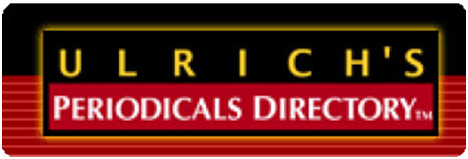




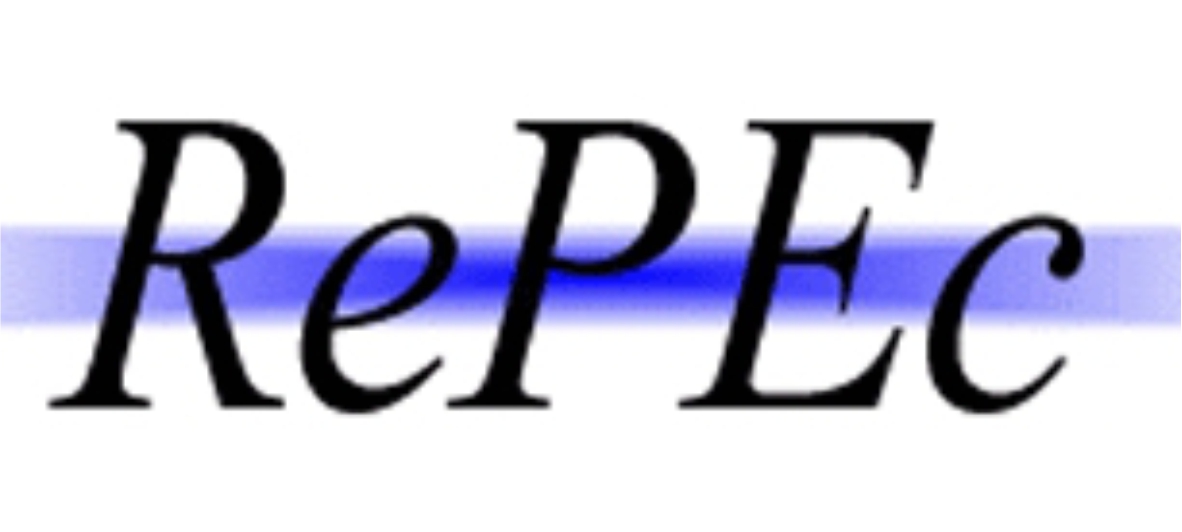

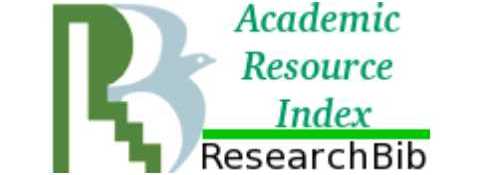

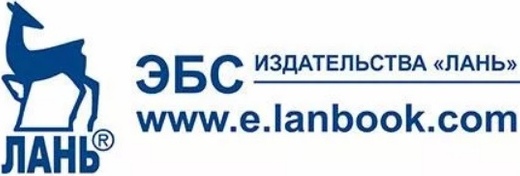
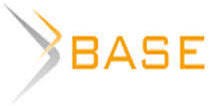


Reference lists
1. Lean production in the educational process, 2014 [An electronic resource] / N.A. Demeneva //Methods of quality management, No. 1, 2014.-http://docs.cntd.ru/document/420340630 (Accessed 11 January 2019) (in Russian)
2. Vaganova O.V., 2018. To a question of formation of the concept of "Lean University" / The Administrative congress: the collection of articles on the materials of a complex scientific and practical activity of "BelSU" Research University, October 30 – November 2, 2018 / Ed. by V.M. Zakharov. Belgorod: Publishing House “Belgorod”, "BelSU" Research University, 2018. Pp. 106-109. (in Russian)
3. Vaganova O.V., Titov A.B., 2016. Development of a regional innovative system in the conditions of turbulence //In the collection: Current problems of economy in the conditions of reforming of modern society. Materials of the IV International scientific and practical conference devoted to the 140 Anniversary of foundation of "BelSU" Research University. 2016. Pp. 9-12. (in Russian)
4. Volkova, I.A., 2017. Problems and prospects of application of lean technologies in the educational organization //The Education system and technologies of lean production: materials of an intramural and extramural Regional scientific and practical conference (Nizhnevartovsk, March 31, 2017) / Nizhnevartovsk: Nizhnevartovsk State University Publishing House, 2017. Pp. 12-19. (in Russian)
5. Deming, E., 1994. Recovery from the crisis / E. Deming. Tver: Alba, 1994. 497 p.
6. Dorokhova, I., 2018. Reasonable strategy. Imprortozameshcheniye / I. Dorokhova //Strategiya Journal [Electronic resource] http://strategyjournal.ru/articles/razumnaya-lokalizatsiya/ (Accessed 14 January 2019) (in Russian)
7. Luyster, T., 2008. Lean production: from words to business / Tom Luyster, Don Tepping; [Trnasl. from English by A.L. Raskin]. M.: Standards and quality, 2008. 128, [1] p.
8. A technique for the organization of an effective workplace of the employee of OAO Sberbank of Russia on the basis of the 5S System. (in Russian)
9. Petrova, V.S., 2016. Problems of sustainable regional development / Culture, science, education: problems and prospects //Materials of the V International scientific and practical conference / Ed. by A.V. Korichko. 2016. Pp. 321-324. (in Russian)
10. Processes: approaches and difficulties. Lean production, 2008.: [collection of articles / Chief Ed. G.E. Gerasimova]. M.: NTK "Treck", 2008. 70 p. (in Russian)
11. Pryadko, I.A., 2012. A modern approach to business management. Innovative transformations in the production sphere: collection of materials of the annual international scientific conference, 28-30 November, 2012, Kazan [An electronic resource] / Ed. by of A.R. Radzhabova. – Electron. text (1 file of 6367 Kb). Issue 1. Kirov: ID.MTsNIP, 2012. 341 p. (in Russian)
12. Treshchev, A.M., 2015. A research of influence of instruments of lean production on the development of students’ ability to create products and systems / A.M. Treshchev, I.A. Romanovskaya, O.A. Sergeyev //Basic researches. Pedagogical sciences, No. 2, 2015. Pp. 811-814. (in Russian)
13. Fedotov, A.V., 2001. Automation of management in production systems / A.V. Fedotov. Omsk: Publishing House of Omsk GTU, 2001.
358 p. (in Russian)
14. Formation of the center of competences of lean production in VyatSU, 2015 / S.V. Fomin, M.G. Dorrer //Educational resources and technologies, 2015, No. (11). Pp 34-40. (in Russian)